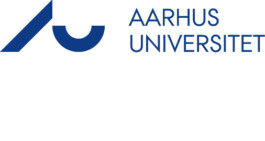
Teaching Global Intellectual History
⬤ Research diary by Christian O. Christiansen, 13th March 2020
This semester we, the (global) intellectual history of global inequality research group, are teaching a course for 4th semester BA students called ‘global theme’. It is fascinating and inspiring and a great chance to combine teaching with key research interests, as it gives us the opportunity to reflect upon global intellectual history in various ways. It is the first time the course takes place, after a reform of our study programme at the section for History of Ideas at Aarhus University a few years ago. The course aims at giving students resources, ideas, methods and support in writing their own exam paper within global intellectual history. It is partly structured around key questions about global intellectual history, which we find useful to think through, such as: What is it? Why do it? How can you do it (approaches and methods)? What is the background for its recent rise as a subfield? What are the main critiques of global intellectual history – and which ways can we go from there? How far back in history can we go? How can we investigate ‘the global’ as a native/actors’ category? What characterizes, respectively, Arabic, African and Indian intellectual history? How would you like to do global intellectual history?
Throughout the course we use an excellent volume on global intellectual history edited by two of our colleagues, Casper Andersen and Mikkel Thorup. Their introduction to the field nicely outlines seven different approaches to doing global intellectual history. They range from global intellectual history as the study of the intellectual history of ‘non-western cultures’ (as in our introductions and seminars on African, Indian and Arabic intellectual history), ‘comparisons without connections’ (e.g. ancient Greek and Chinese thinking in comparison), ‘globalising actors/connections’ (such as intellectual networks in Asian, neoliberal intellectual networks, global creationism, exchanges of ideas and concepts in the context of the Caribbean triangle trade), ‘global conceptual history’ (global conceptual history in South-East Asia, studies on the cross-Atlantic spread of the concept of sovereignty), the global as a ‘native’ or actors’ category (we looked into primary sources on the emergence of the term ‘global inequality’ in the early 1970s), ‘construction of other cultures’ (such as Hobbes and Locke on native Americans), and ‘global’ or ‘planetary’ ideas (acknowledging that very few ideas are actually truly ‘global’). In most of our sessions, we discuss examples of global intellectual history research (mainly short texts from the edited volume mentioned above), focusing upon their main approach to global intellectual history, central themes, strengths and weaknesses, possible avenues for expanding these studies, etc. Our impression is that this work with ‘exemplary studies’ is very helpful in getting a sense of how one can do a study within the field of global intellectual history.
We have discussed eurocentrism and the need to go beyond western perspectives. Cross-national and cross-cultural intellectual exchanges. We have talked about inclusion and about a polycentric approach to the history of ideas. About moving beyond standard contemporary notions of globalization. About challenging ideas of what modernity is and how it unfolds. About problematic ‘otherings’ and asymmetrical kinds of knowledge and representations of knowledge and thought, as when ‘African philosophy’ is represented as being ‘essentially’ communal (as opposed to ‘western thought’ being ‘essentially’ individualistic). About challenging ideas of ‘incommensurability’ claiming that we cannot compare and contrast different traditions of thought. About the need for new research collaboration across countries and language expertise. About being reflexive about how to use concepts such as ‘global’, ‘modernity’ and ‘the West’, and to trace specific cross-national, cross-cultural or cross-imperial connections rather than simply assume that these are ‘global’. And so much more!
Some suggested readings
Casper Andersen & Mikkel Thorup (eds.), Global Idéhistorie (Aarhus: Baggrund, 2018).
Brimnes, Niels & Andersen, Casper: ”Modernitetsbegrebets muligheder – perspektiver fra sociologi, antropologi og historie”, TEMP. No 12 (2016), 148-165. Available at: http://www.temphist.dk/archive/temp12.pdf
Cooper, Frederick, “Modernity,” in Cooper, Colonialism in Question: Theory, Knowledge, History (Berkeley, CA: Univ. of California Press, 2005), 113-149.
Cooper, Frederik: “How Global Do We Want Our Intellectual History To Be?, in Global Intellectual History, ed. Moyn & Sartori (New York: Columbia U.P., 2013), 283-294.
Moyn, Samuel & Sartori, Andrew, “Approaches to Global Intellectual History,” in Global Intellectual History, ed. Moyn & Sartori, 3-32.
Stråth, Bo, “Towards a Global Conceptual History”, keynote address at National and transnational Notions of the Social, Helsinki 21 august 2008, http://www.helsinki.fi/conceptafrica/theory_method_literature/towards_a_global_conceptual_history.html.
Appiah, Kwame A., “There is No Such Thing as Western Civilisation”, The Guardian (2016): https://www.theguardian.com/world/2016/nov/09/western-civilisation-appiah-reith-lecture
Conrad, Sebastian, What is Global History? (Princeton: Princeton U.P., 2016)
Pocock, J. G. A.: “On the Unglobality of Contexts: Cambridge Methods and the History of Political Thought,” Global Intellectual History, 4, 2019, 1-14.
Gänger, Stefanie & Lewis, Su: “Forum: a World of Ideas: New Pathways in Global Intellectual History, c. 1880-1930,” Modern Intellectual History, 10, 2 (2013), 347-351.’
Schulz-Forberg, Hagen: “Introduction: Global Conceptual History: Promises and Pitfalls of a New Research Agenda,” in A Global Conceptual History of Asia, 1860-1940, ed. Hagen Schulz-Forberg (London & New York: Routledge, 2014), 1-24.
Thomson, Ann, “Global intellectual history: Some reflections on recent publications.” Cromohs, 21 (2017), 133-138.
Stuurman, Siep, The Invention of Humanity (Harvard University Press, 2017), 1-30.
Lloyd, G.E.R, “Adversaries and Authorities,” Proceedings of the Cambridge Philological Society, 40 (1994), pp. 27-48.
Aydin, Cemil: The Idea of the Muslim World: A Global Intellectual History (Cambridge: Harvard University Press, 2017).
El Shakry, O., “Rethinking Arab Intellectual History: Epistemology, Historicism, Secularism,” Modern Intellectual History, 2019, 1-26.
Moaddel, Mansoor: Islamic Modernism, Nationalism, and Fundamentalism: Episode and Discourse (Chicago, ILL: University of Chicago Press, 2005).
Ochieng, O., “African Philosophy is more than you think,” IAI News, 2018, https://iainews.iai.tv/articles/african-philosophy-is-more-than-you-think-it-is-auid-1097?fbclid=IwAR0IzmnLbk3tXYDSvqTkH1XRK49mSTC757u8SidEms8zb1cpIvuH4uRNJs
Sasheej Hegde, ”The ’Modern’ of Modern Indian Political Thougt: Outline of a Framework of Appraisal,” Social Scientist, 35, 5-6 (2007): 19-38.

Teaching Global Intellectual History
⬤ Research diary by Christian O. Christiansen, 13th March 2020
This semester we, the (global) intellectual history of global inequality research group, are teaching a course for 4th semester BA students called ‘global theme’. It is fascinating and inspiring and a great chance to combine teaching with key research interests, as it gives us the opportunity to reflect upon global intellectual history in various ways. It is the first time the course takes place, after a reform of our study programme at the section for History of Ideas at Aarhus University a few years ago. The course aims at giving students resources, ideas, methods and support in writing their own exam paper within global intellectual history. It is partly structured around key questions about global intellectual history, which we find useful to think through, such as: What is it? Why do it? How can you do it (approaches and methods)? What is the background for its recent rise as a subfield? What are the main critiques of global intellectual history – and which ways can we go from there? How far back in history can we go? How can we investigate ‘the global’ as a native/actors’ category? What characterizes, respectively, Arabic, African and Indian intellectual history? How would you like to do global intellectual history?
Throughout the course we use an excellent volume on global intellectual history edited by two of our colleagues, Casper Andersen and Mikkel Thorup. Their introduction to the field nicely outlines seven different approaches to doing global intellectual history. They range from global intellectual history as the study of the intellectual history of ‘non-western cultures’ (as in our introductions and seminars on African, Indian and Arabic intellectual history), ‘comparisons without connections’ (e.g. ancient Greek and Chinese thinking in comparison), ‘globalising actors/connections’ (such as intellectual networks in Asian, neoliberal intellectual networks, global creationism, exchanges of ideas and concepts in the context of the Caribbean triangle trade), ‘global conceptual history’ (global conceptual history in South-East Asia, studies on the cross-Atlantic spread of the concept of sovereignty), the global as a ‘native’ or actors’ category (we looked into primary sources on the emergence of the term ‘global inequality’ in the early 1970s), ‘construction of other cultures’ (such as Hobbes and Locke on native Americans), and ‘global’ or ‘planetary’ ideas (acknowledging that very few ideas are actually truly ‘global’). In most of our sessions, we discuss examples of global intellectual history research (mainly short texts from the edited volume mentioned above), focusing upon their main approach to global intellectual history, central themes, strengths and weaknesses, possible avenues for expanding these studies, etc. Our impression is that this work with ‘exemplary studies’ is very helpful in getting a sense of how one can do a study within the field of global intellectual history.
We have discussed eurocentrism and the need to go beyond western perspectives. Cross-national and cross-cultural intellectual exchanges. We have talked about inclusion and about a polycentric approach to the history of ideas. About moving beyond standard contemporary notions of globalization. About challenging ideas of what modernity is and how it unfolds. About problematic ‘otherings’ and asymmetrical kinds of knowledge and representations of knowledge and thought, as when ‘African philosophy’ is represented as being ‘essentially’ communal (as opposed to ‘western thought’ being ‘essentially’ individualistic). About challenging ideas of ‘incommensurability’ claiming that we cannot compare and contrast different traditions of thought. About the need for new research collaboration across countries and language expertise. About being reflexive about how to use concepts such as ‘global’, ‘modernity’ and ‘the West’, and to trace specific cross-national, cross-cultural or cross-imperial connections rather than simply assume that these are ‘global’. And so much more!
Some suggested readings
Casper Andersen & Mikkel Thorup (eds.), Global Idéhistorie (Aarhus: Baggrund, 2018).
Brimnes, Niels & Andersen, Casper: ”Modernitetsbegrebets muligheder – perspektiver fra sociologi, antropologi og historie”, TEMP. No 12 (2016), 148-165. Available at: http://www.temphist.dk/archive/temp12.pdf
Cooper, Frederick, “Modernity,” in Cooper, Colonialism in Question: Theory, Knowledge, History (Berkeley, CA: Univ. of California Press, 2005), 113-149.
Cooper, Frederik: “How Global Do We Want Our Intellectual History To Be?, in Global Intellectual History, ed. Moyn & Sartori (New York: Columbia U.P., 2013), 283-294.
Moyn, Samuel & Sartori, Andrew, “Approaches to Global Intellectual History,” in Global Intellectual History, ed. Moyn & Sartori, 3-32.
Stråth, Bo, “Towards a Global Conceptual History”, keynote address at National and transnational Notions of the Social, Helsinki 21 august 2008, http://www.helsinki.fi/conceptafrica/theory_method_literature/towards_a_global_conceptual_history.html.
Appiah, Kwame A., “There is No Such Thing as Western Civilisation”, The Guardian (2016): https://www.theguardian.com/world/2016/nov/09/western-civilisation-appiah-reith-lecture
Conrad, Sebastian, What is Global History? (Princeton: Princeton U.P., 2016)
Pocock, J. G. A.: “On the Unglobality of Contexts: Cambridge Methods and the History of Political Thought,” Global Intellectual History, 4, 2019, 1-14.
Gänger, Stefanie & Lewis, Su: “Forum: a World of Ideas: New Pathways in Global Intellectual History, c. 1880-1930,” Modern Intellectual History, 10, 2 (2013), 347-351.’
Schulz-Forberg, Hagen: “Introduction: Global Conceptual History: Promises and Pitfalls of a New Research Agenda,” in A Global Conceptual History of Asia, 1860-1940, ed. Hagen Schulz-Forberg (London & New York: Routledge, 2014), 1-24.
Thomson, Ann, “Global intellectual history: Some reflections on recent publications.” Cromohs, 21 (2017), 133-138.
Stuurman, Siep, The Invention of Humanity (Harvard University Press, 2017), 1-30.
Lloyd, G.E.R, “Adversaries and Authorities,” Proceedings of the Cambridge Philological Society, 40 (1994), pp. 27-48.
Aydin, Cemil: The Idea of the Muslim World: A Global Intellectual History (Cambridge: Harvard University Press, 2017).
El Shakry, O., “Rethinking Arab Intellectual History: Epistemology, Historicism, Secularism,” Modern Intellectual History, 2019, 1-26.
Moaddel, Mansoor: Islamic Modernism, Nationalism, and Fundamentalism: Episode and Discourse (Chicago, ILL: University of Chicago Press, 2005).
Ochieng, O., “African Philosophy is more than you think,” IAI News, 2018, https://iainews.iai.tv/articles/african-philosophy-is-more-than-you-think-it-is-auid-1097?fbclid=IwAR0IzmnLbk3tXYDSvqTkH1XRK49mSTC757u8SidEms8zb1cpIvuH4uRNJs
Sasheej Hegde, ”The ’Modern’ of Modern Indian Political Thougt: Outline of a Framework of Appraisal,” Social Scientist, 35, 5-6 (2007): 19-38.

